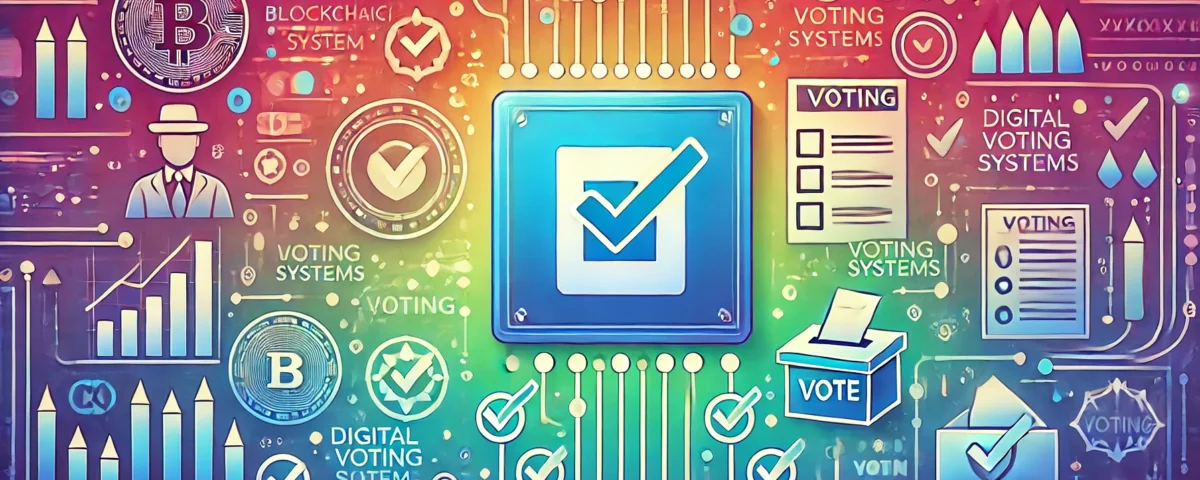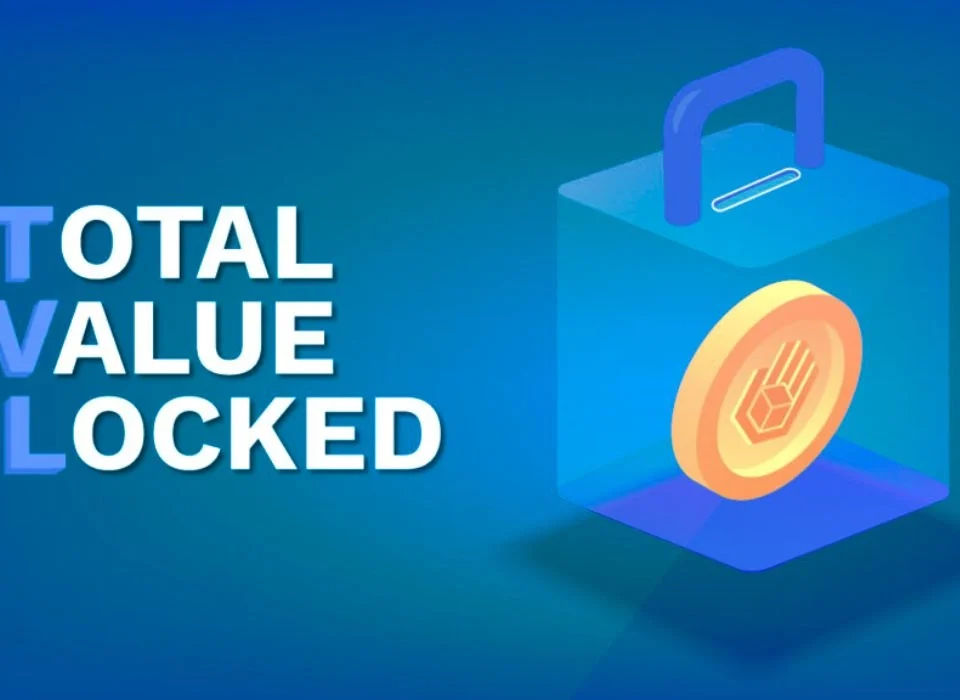
The Role of Blockchain in Healthcare
06/08/2024
The Role of Blockchain in Intellectual Property Management
10/08/2024The Role of Blockchain in Voting Systems
Voting is a cornerstone of democratic societies, providing citizens with a means to influence government and organizational decisions. However, traditional voting systems face numerous challenges, including security vulnerabilities, fraud, accessibility issues, and transparency concerns. Blockchain technology, with its decentralized and immutable characteristics, offers potential solutions to these problems. This article explores the role of blockchain in voting systems, examining its benefits, challenges, applications, and future prospects.
Introduction to Blockchain Technology
What is Blockchain?
Blockchain is a decentralized ledger technology that records transactions across a network of computers. Each block contains a list of transactions and is linked to the previous block, forming a chain. Key characteristics of blockchain include decentralization, transparency, immutability, and security.
How Blockchain Works
Transactions on a blockchain are verified by consensus mechanisms such as proof of work (PoW) or proof of stake (PoS). Once verified, transactions are recorded in a block, which is then added to the chain. This process ensures that the data is tamper-proof and transparent, as any changes would require altering all subsequent blocks.
Benefits of Blockchain in Voting Systems
Enhanced Security
Blockchain’s decentralized nature makes it resistant to hacking and tampering. Each vote recorded on the blockchain is encrypted and linked to the previous vote, creating a secure and immutable record. This ensures that votes cannot be altered or deleted once they are cast.
Transparency and Trust
Blockchain provides a transparent platform where all participants can verify the integrity of the voting process. Each vote is publicly recorded on the blockchain, allowing anyone to audit the results and ensuring that the process is free from manipulation.
Accessibility and Inclusivity
Blockchain voting systems can be designed to be accessible to all eligible voters, including those with disabilities or those living in remote areas. By enabling online voting through secure digital platforms, blockchain can increase voter participation and inclusivity.
Efficiency and Cost Reduction
Traditional voting systems involve significant logistical efforts and costs, such as printing ballots, setting up polling stations, and counting votes. Blockchain can streamline these processes by enabling secure online voting, reducing the need for physical infrastructure and manual vote counting.
Anonymity and Privacy
Blockchain can provide a secure and private voting environment where voters’ identities are protected. Through cryptographic techniques, blockchain can ensure that votes are anonymous while still verifying that each vote is cast by a legitimate voter.
Challenges of Implementing Blockchain in Voting Systems
Scalability
Blockchain networks can face scalability issues, particularly when handling a large number of transactions. Voting systems require the ability to process a high volume of votes quickly and efficiently. Current blockchain technologies may struggle with this demand, although ongoing research and development aim to address these challenges.
Regulatory and Legal Issues
Implementing blockchain voting systems requires navigating complex legal and regulatory landscapes. Ensuring compliance with election laws and regulations is crucial for the legitimacy of the voting process. Additionally, gaining acceptance from governments and regulatory bodies can be a significant hurdle.
Voter Verification
Ensuring that each vote is cast by a legitimate and eligible voter is essential for the integrity of the voting process. Blockchain voting systems must incorporate robust voter verification mechanisms to prevent fraud and ensure that only eligible voters can participate.
Technical Expertise and Infrastructure
Deploying and managing blockchain voting systems requires significant technical expertise and infrastructure. Training election officials and stakeholders to use and maintain the system can be challenging, particularly in regions with limited technological resources.
Resistance to Change
Adopting new technologies, particularly in critical areas like voting, can be met with resistance from stakeholders accustomed to traditional methods. Building trust and confidence in blockchain voting systems is essential for their successful implementation.
Applications of Blockchain in Voting Systems
National and Local Elections
Blockchain technology can be used to conduct national and local elections, ensuring secure, transparent, and efficient voting processes. Countries like Estonia have already implemented blockchain-based voting systems for national elections, demonstrating the feasibility and benefits of this technology.
Example
- Estonia: Estonia’s i-Voting system, launched in 2005, allows citizens to vote online using secure digital IDs. The system has since integrated blockchain technology to enhance security and transparency.
Organizational and Corporate Voting
Blockchain can be used for voting in organizational and corporate settings, such as shareholder meetings and board elections. This ensures that the voting process is transparent, secure, and tamper-proof, enhancing trust among stakeholders.
Example
- Nasdaq Linq: Nasdaq’s blockchain-based platform allows companies to manage and record shareholder votes securely and transparently.
Political Party Primaries
Political parties can use blockchain voting systems to conduct primaries and internal elections. This ensures that the voting process is fair, transparent, and free from manipulation.
Example
- Sierra Leone: In 2018, Sierra Leone became the first country to use blockchain technology to verify election results, providing a transparent and secure voting process for its presidential election.
Referendums and Public Consultations
Blockchain can facilitate secure and transparent referendums and public consultations, allowing citizens to participate in decision-making processes. This enhances public trust and engagement in democratic processes.
Example
- Zug, Switzerland: Zug, known as “Crypto Valley,” conducted a blockchain-based referendum in 2018, allowing citizens to vote on various municipal issues securely and transparently.
University and Student Elections
Educational institutions can use blockchain voting systems for student elections and decision-making processes. This ensures that the voting process is secure, transparent, and inclusive.
Example
- West Virginia, USA: West Virginia piloted a blockchain-based voting system for military personnel and overseas voters in the 2018 midterm elections, demonstrating the potential for secure and accessible voting for remote populations.
Future Prospects of Blockchain in Voting Systems
Technological Advancements
Ongoing advancements in blockchain technology, such as improved scalability solutions and enhanced security protocols, will address current limitations and make blockchain voting systems more viable for large-scale applications.
Integration with Emerging Technologies
Integrating blockchain with other emerging technologies, such as artificial intelligence (AI) and the Internet of Things (IoT), can enhance the functionality and efficiency of voting systems. For example, AI can help verify voter identities, while IoT devices can facilitate secure and convenient voting processes.
Increased Adoption and Acceptance
As blockchain technology matures and demonstrates its benefits in real-world applications, its adoption for voting systems is likely to increase. Governments, organizations, and institutions will become more open to exploring and implementing blockchain voting solutions.
Enhanced Voter Engagement
Blockchain voting systems can enhance voter engagement by providing a secure and convenient way to participate in elections. Increased accessibility and trust in the voting process will encourage more citizens to exercise their right to vote.
Standardization and Best Practices
Developing standardized protocols and best practices for blockchain voting systems will ensure their consistent and reliable implementation. Collaboration among governments, regulatory bodies, and technology providers will be crucial in establishing these standards.
Conclusion
Blockchain technology holds significant promise for transforming voting systems by addressing key challenges related to security, transparency, accessibility, and efficiency. Its potential applications range from national elections and organizational voting to referendums and university elections. Despite challenges related to scalability, regulation, voter verification, and technical expertise, the future of blockchain in voting systems looks promising. As the technology continues to evolve and mature, it will play an increasingly important role in creating secure, transparent, and inclusive voting processes. Understanding the benefits, applications, and challenges of blockchain in voting systems is essential for stakeholders to navigate this rapidly changing landscape and harness the full potential of this transformative technology.



